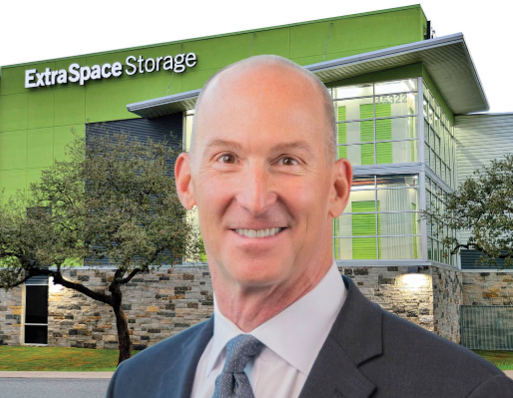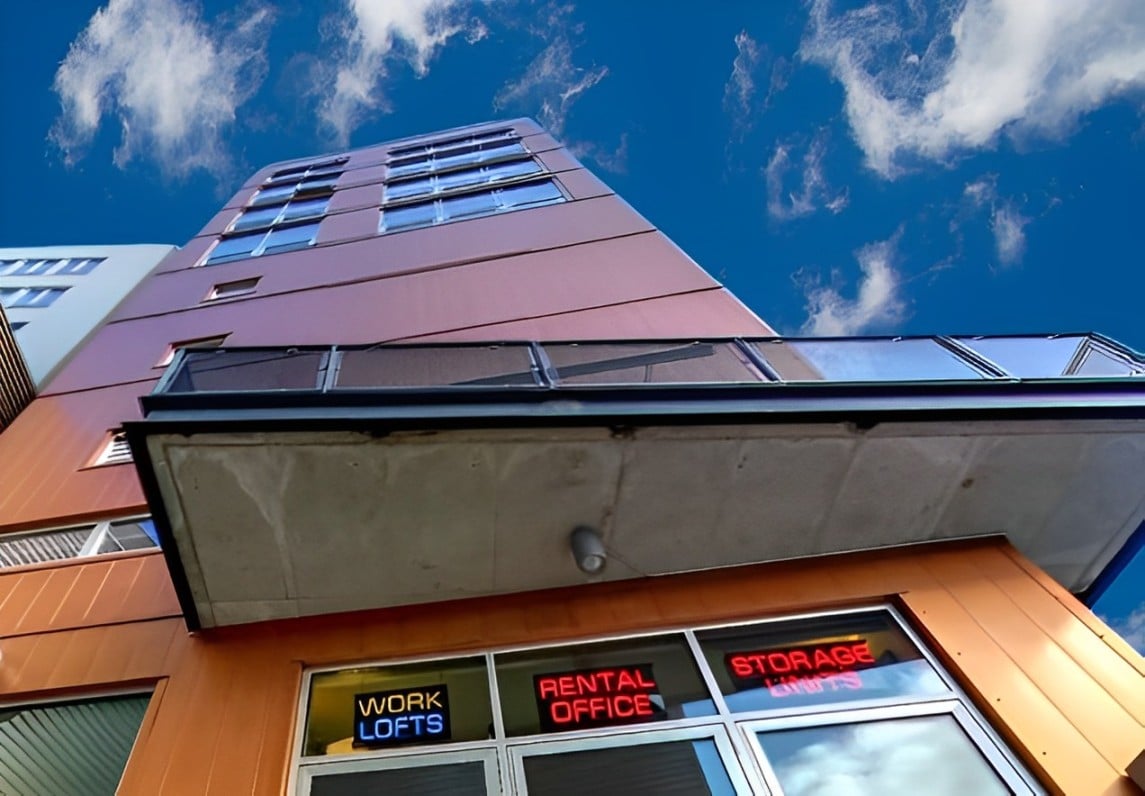Time To Sell?
Six Considerations For Sellers
There is a growing perception that self-storage real estate values may be at or near their historical peak in some markets. But, even in markets where prices have yet to fully recover, or where values have simply remained flat, it may still be the right time to sell for many.
Why Sell?
Although the expectation of falling asset values may spur many to sell, there are many other common catalysts. The threat of increasing competition or other market changes, management considerations, life changes (death, divorce, retirement, etc.), reaching the end of an investment time horizon, dwindling depreciation deductions, the need for an expensive repair or replacement (roofs, asphalt, etc.), or a loan reaching the end of its term are all valid reasons to consider selling a property.
Some important considerations when making a sell or hold decision are:
- What is the time horizon for your investment? Often, investors have a particular time horizon in mind, and loans for self-storage properties often have terms of five, seven, and 10 years, with the financing term matched to coincide with the investor’s time horizon.
A syndicator may have sought investors under the premise of a certain time horizon, and that time period might have coincided with the anticipated retirement of the investor, certain college commitments, cash needs, etc.
Since most investors match the financing term with the projected time horizon, refinancing may make it difficult to sell the property at a premium (net of loan prepayment costs) prior to the end of the refinancing term. This is a very common reason to sell a property, particularly if it has been performing poorly or the owner or investors have no desire to own the property for another loan term.
- What are the occupancy characteristics? The property’s cash flow prospects are a particularly critical consideration, both to the valuation and to the sell-versus-hold decision. The prospect of signing new tenants at higher rent levels could result in higher cash flow and a significantly higher property value. Conversely, if the owner anticipates increased competition, or is concerned about other factors that might negatively impact the future cash flow, a sale could be a logical solution.
- Will new development impact your market? In many areas, demand for self-storage space has improved along with increased consumer confidence and new home sales. Yet, compared to previous cycles, there have been comparatively few new self-storage properties developed.
Improving economic conditions usually result in increased revenues for self-storage facilities, as long as increased supply doesn’t exceed the increased demand. And, if the economic outlook is favorable, little new competition is expected, and the owner expects interest rates remain reasonable, an owner may rationally choose to continue to hold that property.
Nevertheless, there are some precursors to the likelihood of future competition, which often results in a poor economics for self-storage facilities:
- A large supply of nearby three- to five-acres sites with decent traffic exposure, zoned for more intensive commercial uses, available at relatively low prices. Clearly, this should be a threat to an owner of an existing project that is doing well.
- Rapidly improving availability of construction financing for new self-storage projects in dynamic, cyclical markets. This is probably why many areas have yet to see significant competition. Lenders, particularly banks, were stung so badly financing new self-storage projects between 2007 and 2010, they still don’t feel comfortable. This will change. When just about anyone with a heartbeat and a vacant, marginal self-storage site can obtain financing, every self-storage owner in all but the most land-constrained areas should feel threatened.
Speaking generally, some self-storage markets are not as cyclical as others, and with low levels of new product coming online and few planned projects currently in the pipeline, rates and occupancy levels may continue to improve, even during worsening macroeconomic conditions. However, seasoned self-storage owners and developers know too well that self-storage, just like other real estate asset classes, tends to run in cycles, and certain markets can become overbuilt.
By the way, “overbuilt” is a bit of a misnomer. A poor economy often leads to a market where the quantity demanded (self-storage space utilized per person) declines significantly. So, even if at the peak of the market all of the storage space is 100 percent full, if the population remains the same, and the quantity demanded falls from 10 square feet per person to seven square feet per person, the market would experience a vacancy of 30 percent, even without any additional supply.
Markets such as Houston, Dallas, Phoenix, the Carolinas, and Denver, to name a few, are currently catching the focused efforts of many seasoned and new to the market self-storage developers. The Phoenix Metro market over the past 24 months has delivered 11 new facilities with approximately 24 additional locations either working through entitlements, zoned and/or under construction, with an additional minimum 10 sites being marketed for self-storage. In summary, it is important for an owner to be aware of the dynamics of his or her market.
- Deferred maintenance: What is the condition of the property? Usage and the passage of time lead to potential maintenance issues. What is the condition of the roofs and paving? Will they need refurbishing or replacement in the near future? What about the elevators and HVAC systems? The expected timing of significant maintenance expenditures can have a significant impact on cash flow. An owner may not want to invest additional capital, time, and energy—or may not have the capital readily available—to expand a facility or complete major repairs, and, as a result, might consider a sale to be a viable alternative.
- What are the tax implications on any potential sale? Before they can make a fully-informed decision, current owners need to consider possible tax losses or gains, and have a reliable figure for their “basis” in the property. What was paid for the property, plus additional capital expenditures, less depreciation? The larger the basis the better, as the difference between sale price and the basis will determine the capital gain, and thus the tax owed.
Owners also need to consider the impact the timing will have on the tax liability of any sale. And, potential capital gains or losses should be considered in the context of an owner’s overall tax position.
Timing can be a critical component of any decision to sell. Gains or losses on commercial real estate can be used to offset gains or losses from other transactions, business operations, or personal actions or events (such as the establishment of trusts, inheritances, IRS liens, etc.). If a sale can be delayed beyond the end of the tax year, this can defer the tax liability.
Alternatively, there will be cases where an owner will want to accelerate a sale, again as a means of minimizing the tax liability.
Selling real estate to REITs through the issuance of OP units instead of cash can give sellers the option to defer taxable property gains while investing in publicly traded REITS, participating in the potential capital appreciation and dividend income. Over the past few years, conversions to REIT shares has gained more interest; however, not all properties qualify and many attempts fall short in eliminating negative tax consequences. Often, the size/price of the property is not large enough to make this option feasible.
Timing is critically important when utilizing a Section 1031 exchange to delay a tax event. There have been tragic mistakes made by misinterpreting exchange rules. Always consult your tax advisor prior to committing to the sale or exchange of real estate.
- Are there any loan covenants or agreements that could add costs to the sale? Commercial real estate financing often comes with various fees for termination or early payoff. While assumption and loan prepayment penalties are not always significant, these fees can be prohibitive. It is not unusual for defeasance costs for conduit/CMBS loans to exceed hundreds of thousands of dollars. Consequently, owners should be aware of prepayment penalties and loan fees before agreeing upon a sale price.
Many buyers try to leverage their investments as much as possible and, as a result, it is very important for an owner to understand that refinancing a property during a period of stable or declining interest rates tends to handcuff the borrower for another mortgage term, particularly if the leverage is a conduit loan requiring defeasance.
Recently, prepayment penalties by bank lenders have not been as burdensome as for non-recourse conduit/CMBS loans; however, bank loans typically are recourse to the borrower, and many, if not most, self-storage buyers are averse to recourse loans.
Also, many lenders will lend more money to a new owner than an existing “refi-owner.” For instance, the maximum loan to value for a refi may only be 65 percent of appraisal, versus 70 percent of sale price for a new owner. This results in a higher cash-on-cash return for a new buyer than for the refinancing owner.
Financing is a critical consideration when considering a sale. Each type of loan has its complexities. Favored lenders and mortgage loan terms change regularly. Each type of lender (banks, insurance companies, agency-guaranteed loans [such as SBA programs], and conduits/CMBS) and loan program has its pros and cons. Be sure to ask your mortgage or real estate broker to explain the details of each, either, if active in the marketplace, should be able to let you know which options are most in favor when you decide to buy or sell.
If the answer is, “it might make sense to sell,” talk to your tax advisor and an experienced broker with a good reputation who is familiar with your property type, and you’ll likely save considerable time, energy, and consternation during the process. If you feel uncomfortable with a broker, interview another. Selling an investment property is an important undertaking, and it is important that you feel confident and secure that you’ve made the right decision.
Denise Nunez is senior vice president of NAI Horizon. She has 23 years of self-storage industry experience and specializes in the acquisition and disposition of self-storage assets. In 2014 alone, she was involved in the sale of 20 self-storage investment transactions totaling $43 million.
More Content
Popular Posts
The REITs new pricing strategy – lowering...
The self storage industry is in a precarious...
With the approval of both companies’...
Recent Posts
Owning or managing a self-storage facility...
Helen Keller is quoted as saying, “Alone we...
It’s often been said that “opportunity is...
There’s a saying in Florida that there are...
The landscape of the self-storage industry...
Last January, the prime interest rate was...
Many of us are seeking ways to bring in new...














